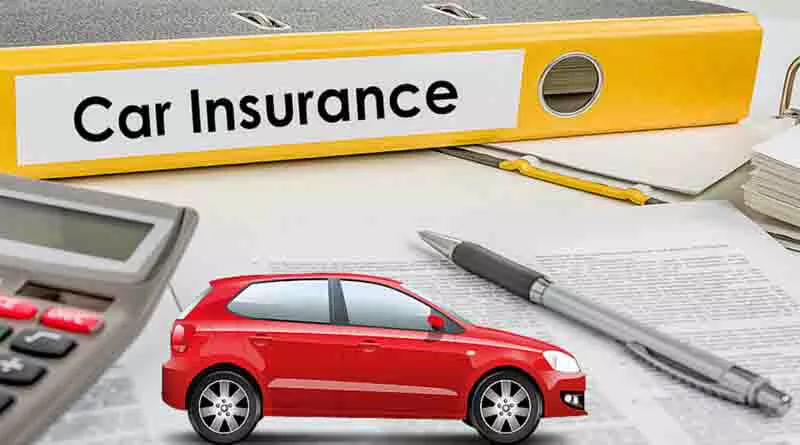Car insurance provides essential financial protection in the event of an accident, theft, or other unexpected incidents. However, there are situations where your car insurance policy might be cancelled, leaving you without coverage and potentially facing legal and financial consequences. Understanding why your car insurance was cancelled can help you take steps to avoid this situation in the future and maintain continuous coverage.
Common Reasons for Car Insurance Cancellation
1. Non-Payment of Premiums
One of the most common reasons for car insurance cancellation is the failure to pay premiums. Insurance companies require regular payments to keep your policy active. Missing a payment or consistently paying late can result in your policy being cancelled. It is crucial to set up automatic payments or reminders to ensure you do not miss any payments.
How to Avoid Non-Payment Issues
Set up automatic payments with your bank or insurer
Schedule reminders for payment due dates
Contact your insurer if you are experiencing financial difficulties
2. Misrepresentation or Fraud
Providing false information when applying for insurance or filing a claim can lead to the cancellation of your policy. Insurance companies rely on accurate information to assess risk and determine premiums. Misrepresentation or fraud undermines this process and can result in severe penalties.
Examples of Misrepresentation
Providing incorrect information about your driving history
Failing to disclose additional drivers in your household
Exaggerating the extent of damage or injuries in a claim
Avoiding Misrepresentation
Always provide accurate and truthful information
Update your insurer with any changes to your circumstances
Review your policy documents for accuracy
3. High-Risk Behavior
Engaging in high-risk behavior, such as multiple traffic violations, DUIs, or reckless driving, can lead to the cancellation of your car insurance policy. Insurers assess risk based on your driving behavior, and repeated incidents can make you too risky to insure.
High-Risk Behavior Examples
Multiple speeding tickets
Driving under the influence of alcohol or drugs
Reckless or aggressive driving
Reducing High-Risk Behavior
Drive safely and adhere to traffic laws
Avoid driving under the influence
Take defensive driving courses to improve your skills
4. Changes in Risk Profile
Significant changes in your risk profile, such as moving to a high-crime area or purchasing a high-performance vehicle, can lead to policy cancellation. Insurers may decide that the increased risk is not worth the continued coverage.
Managing Changes in Risk Profile
Notify your insurer of any changes to your circumstances
Consider the impact of major life changes on your insurance
Shop around for new insurance if your current policy is cancelled
5. Lapse in Coverage
Allowing your insurance policy to lapse, even for a short period, can result in cancellation. Continuous coverage is essential to avoid being deemed a high-risk driver by insurers. A lapse in coverage can also lead to higher premiums when you seek new insurance.
Preventing a Lapse in Coverage
Set up automatic renewal for your policy
Keep track of renewal dates and contact your insurer in advance
Maintain a backup payment method on file
6. Excessive Claims
Filing multiple claims within a short period can lead to the cancellation of your policy. Insurers may view frequent claims as an indication of higher risk and decide to terminate coverage.
Minimizing Claims
Consider the cost of repairs versus potential premium increases before filing a claim
Practice safe driving to avoid accidents
Regularly maintain your vehicle to prevent issues
see also: When Can I Cancel Car Insurance?
Steps to Take If Your Car Insurance Is Cancelled
1. Contact Your Insurer
The first step is to contact your insurer to understand the specific reason for the cancellation. This can provide valuable information on what you need to do to rectify the situation or prevent future cancellations.
Questions to Ask Your Insurer
What is the reason for the cancellation?
Is there any way to reinstate the policy?
What steps can I take to avoid future cancellations?
2. Seek Alternative Insurance
If your policy is cancelled, it is essential to seek alternative insurance as soon as possible. Driving without insurance is illegal and can result in severe penalties. Look for insurers who specialize in high-risk drivers if necessary.
Finding New Insurance
Shop around and compare quotes from multiple insurers
Consider high-risk insurance providers if standard insurers decline coverage
Be honest about your previous cancellation when applying
3. Review and Improve Your Risk Profile
Take steps to address the issues that led to your policy cancellation. This may involve improving your driving habits, ensuring timely payments, or providing accurate information to your insurer.
Improving Your Risk Profile
Attend driving courses to improve your skills
Pay premiums on time and in full
Avoid high-risk behaviors and maintain a clean driving record
4. Maintain Continuous Coverage
Ensure that there are no gaps in your coverage. Even a short lapse can make it challenging to find new insurance and lead to higher premiums. Continuous coverage is key to maintaining a good standing with insurers.
Tips for Continuous Coverage
Set up automatic payments and renewals
Keep track of policy expiration dates
Contact your insurer promptly if you face any issues
Preventing Future Cancellations
1. Understand Your Policy
Familiarize yourself with the terms and conditions of your car insurance policy. Understanding what is required of you and what can lead to cancellation can help you avoid common pitfalls.
Key Policy Elements to Review
Payment terms and due dates
Reporting requirements for changes in circumstances
Exclusions and limitations of coverage
2. Maintain Good Communication with Your Insurer
Regularly communicate with your insurer to keep them updated on any changes to your circumstances. This can help prevent misunderstandings and ensure your policy remains in good standing.
When to Contact Your Insurer
When you move to a new address
If there are changes to your driving habits or vehicle use
When adding or removing drivers from your policy
3. Practice Safe Driving
Safe driving is one of the most effective ways to avoid policy cancellation. By maintaining a clean driving record, you reduce the risk of incidents that could lead to cancellation.
Safe Driving Practices
Obey traffic laws and speed limits
Avoid distractions while driving
Never drive under the influence of alcohol or drugs
Conclusion
Having your car insurance cancelled can be a stressful and challenging experience. However, by understanding the common reasons for cancellation and taking proactive steps to avoid them, you can maintain continuous coverage and protect yourself from potential legal and financial consequences. Always communicate openly with your insurer, practice safe driving, and ensure timely payments to keep your car insurance policy in good standing.




















